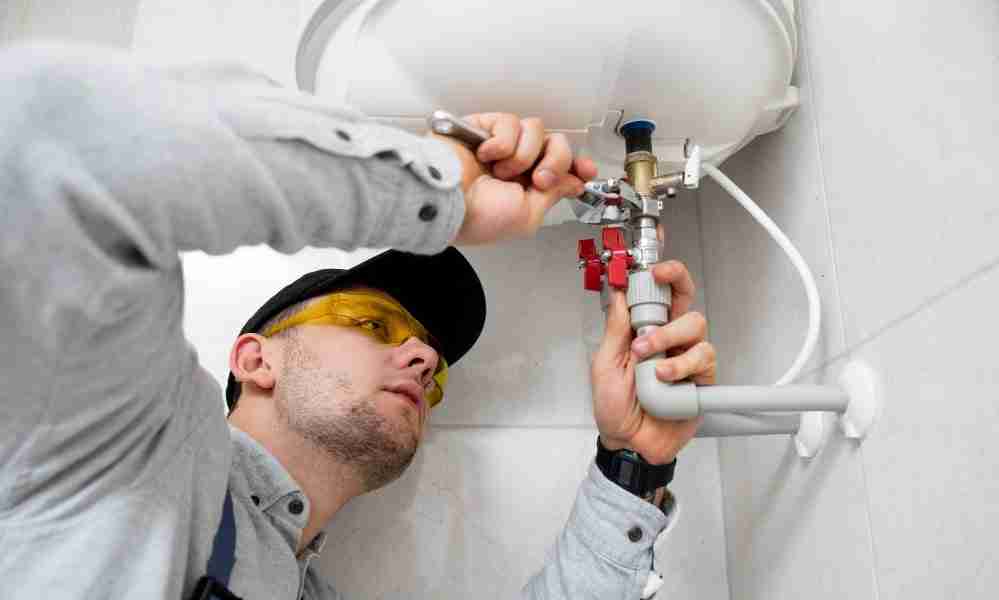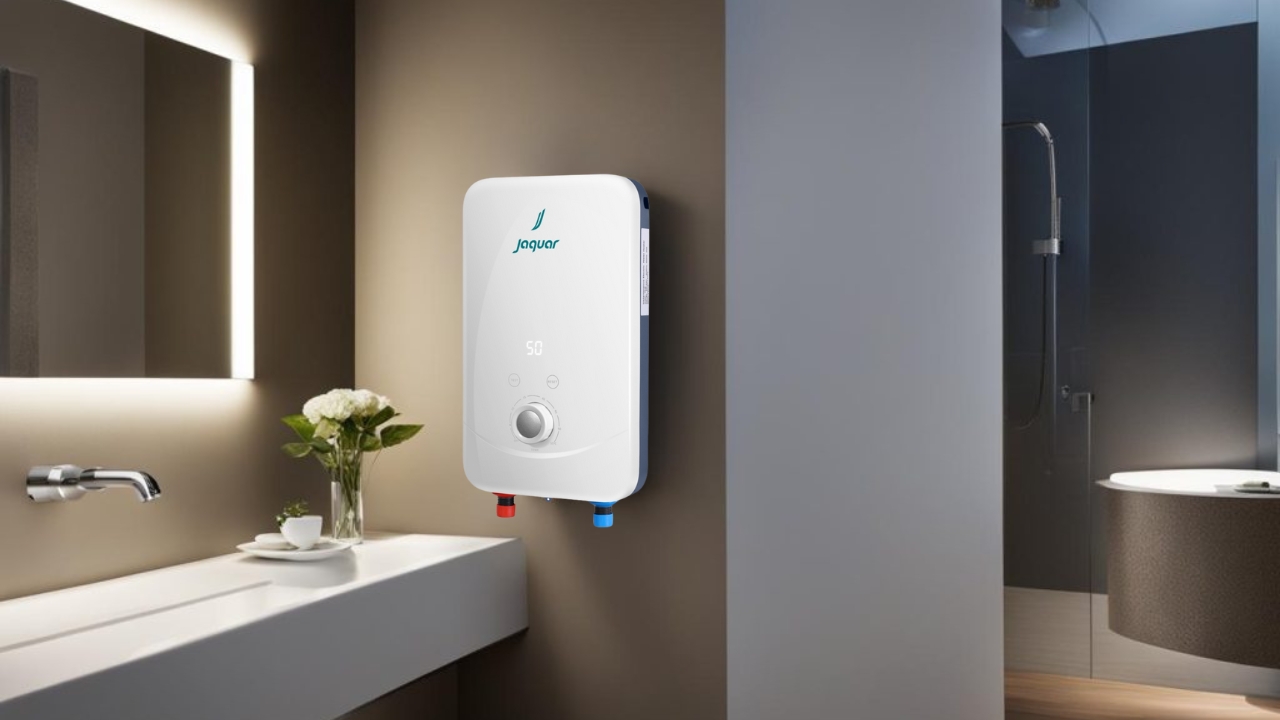The Road To Gaining The Benefits Of Tankless Water Heaters
The Road To Gaining The Benefits Of Tankless Water Heaters
Blog Article
What are your opinions with regards to Six Benefits of a Tankless Hot Water Heater?

In a globe where benefit and performance reign supreme, it's no surprise that house owners are regularly in search of smarter means to handle their home's power consumption and convenience. One technology that has progressively obtained appeal is the tankless water heater. Yet what exactly makes these systems stick out from the standard tank-based models a lot of us grew up with? Allow's dive in and discover the benefits of tankless water heaters, helping you decide if it's time to make the switch in your home.
Introduction
Photo this: you step into the shower after a long day, expecting a calming waterfall of warm water, only to be greeted by icy beads because the last individual utilized all of it up. Audio familiar? Traditional hot water heater store a fixed quantity of warm water, suggesting you go to the mercy of that tank's supply. Tankless systems, on the other hand, warmth water on demand. Say goodbye to running out mid-shower, say goodbye to wrestling with timetables simply to ensure hot water is offered.
Understanding Tankless Hot Water Heater
What Are Tankless Water Heaters?
Tankless hot water heater, often known as on-demand or instantaneous water heaters, provide warm water just as it's needed. Instead of keeping gallons of pre-heated water, these devices kick into action the moment you turn on the faucet. Water travels through a warm exchanger, warming up in real-time, implying you obtain an uninterrupted circulation of hot water without the requirement for a big container resting lazily by.
Just how Do They Vary from Conventional Systems?
Standard heating systems hold a reservoir of warm water, using energy to maintain that container at a consistent temperature level. Tankless devices eliminate the standing supply, lowering squandered power and the bulky impact of a huge cylinder. Essentially, you're updating from a "accumulation" frame of mind to a "made-to-order" strategy.
Common Types of Tankless Systems
Tankless hot water heater usually can be found in 2 selections: gas and electrical. Gas designs tend to provide greater flow rates, perfect for bigger households, while electrical designs frequently offer smaller sized homes and are usually easier to mount. Furthermore, some systems are created for point-of-use (serving one component) while others can take care of the whole home's hot water needs.
Trick Benefits of Tankless Water Heaters
Energy Efficiency and Cost Cost Savings
No more warming a giant container's well worth of water and keeping it toasty all the time. Tankless heating units minimize standby energy losses, which can reduce energy bills. While the first expense might be greater, the long-lasting savings often validate the financial investment.
3. Space-Saving Style
If your home is short on storage space, removing the bulky storage tank liberates important room. Tankless systems are compact and can frequently be mounted on wall surfaces, tucked away in corners, or set up in limited energy wardrobes without gobbling up the whole area.
4. Longer Life-span
A properly maintained tankless water heater can outlive its tank-based relative. Typical storage tanks might last 10-15 years, while tankless versions can keep downing along for 20 years or more, making them a strong financial investment with time.
1. Endless Hot Water Supply
Ever before had to set up showers so everyone gets their reasonable share of hot water? With tankless, that ends up being a distant memory. As long as the heater's circulation capability isn't exceeded, you can take back-to-back showers without developing into a popsicle.
5. Improved Water Top Quality
Saving water in a tank can in some cases cause sediment build-up or a slightly "off" preference. With tankless systems, fresh water is heated instantly, reducing the opportunities of sediment buildup and potentially using cleaner-tasting water.
Factors to consider Before Switching
Though the benefits are engaging, it's smart to consider a few variables prior to fully committing.
Assessing Your Home's Water Usage Patterns
If your home all at once makes use of numerous components with high warm water demand, make certain the device's flow price satisfies your demands. Understanding your usage patterns helps you pick the appropriate dimension and kind of tankless heating unit.
Maintenance and Care Tips
Tankless systems are reasonably low maintenance, however they aren't set-it-and-forget-it appliances.
Routine Cleansing and Descaling
Difficult water minerals can accumulate in the warmth exchanger, influencing efficiency. Routine descaling (frequently advised yearly) maintains the unit going for peak performance.
Yearly Specialist Evaluations
A yearly checkup from a specialist makes certain minor issues are caught early. They'll assess the unit's performance, look for leaks, and assist preserve optimum performance.
First Investment Costs
Tankless heaters commonly feature a greater upfront cost. In between the unit itself and potential installation modifications, the first expense might offer you sticker label shock. However remember to watch it as a long-term financial investment.
Setup Requirements
Relying on your home's facilities, you could need added electric capability or gas line upgrades. Ensure you understand the setup demands and consult with an expert to avoid shocks.
Guaranteeing Appropriate Ventilation
For gas designs, proper air flow is vital to securely expel exhaust gases. See to it venting systems are tidy and correctly installed to avoid any type of potential safety and security hazards.
Comparing Different Brands and Models
Not all tankless water heaters are created equal.
Researching Reputable Producers
Search for trustworthy brand names with a history of producing top quality devices. A trusted manufacturer often gives much better client assistance and longer guarantees.
Installment: Do It Yourself or Expert?
While some property owners cherish tackling projects themselves, tankless installment could not be the best time to break out the tool kit.
Advantages and disadvantages of DIY Setup
A DIY set up can conserve money, however it features threats. Incorrect installation can cause inadequacy or safety and security concerns. If you're handy and have experience, it might be possible-- but proceed with caution.
Reading Reviews and User Feedback
User reviews and responses from next-door neighbors or pals who have gone tankless can use beneficial understandings. Occasionally, real-life experiences can be more informing than marketing sales brochures.
When to Call an Expert Plumbing
For the majority of, calling a professional ensures every little thing's done properly. A professional plumbing comprehends regional codes, sizing requirements, and venting criteria, minimizing the danger of problems.
Making best use of Performance
You've invested in a tankless device-- now optimize its effectiveness.
Ideal Temperature Settings
Lots of people establish their units between 120-140 F. Adjusting the temperature level can boost convenience and financial savings. Experiment to find a wonderful place that does not waste energy.
Pairing with Low-Flow Fixtures
Wish to extend your unit's capabilities? Think about setting up low-flow showerheads and taps. They lower water usage, enabling your tankless system to supply a stable stream of hot water without stressing.
Ecological Effect
Tankless water heaters align with greener living objectives.
Minimized Carbon Footprint
By utilizing much less energy and just heating water as needed, tankless systems can decrease your home's carbon impact, decreasing your ecological impact.
Preserving Natural Resources
Much less energy usage and less thrown away hot water convert right into less natural resources being made use of, an environmental win-win.
Who Profits Most from Tankless Heating units?
The appeal of tankless heating systems is that they can suit a range of families.
Huge Family Members vs. Single Residents
Big households may like the unlimited hot water supply, while single passengers value the power cost savings from not heating up an entire tank for simply one person's early morning shower.
Home Owners with Minimal Area
If your home is short on square footage, shedding the bulky tank liberates space for other basics-- or possibly simply more breathing space.
Eco-Conscious Consumers
Going tankless aligns with environmentally friendly worths, guaranteeing you're not throwing away power or resources.
Future Trends in Tankless Hot Water Heater
The world of home devices is ever-evolving, and tankless water heaters are no exemption.
Advancements in Innovation
R&D is regularly boosting warm exchangers, making units much more reliable and durable. Future models may be also quieter, extra portable, and better suited for varying environments.
Smart Home Assimilation
Envision readjusting your hot water heater's temperature level using an application or obtaining upkeep alerts on your phone. As wise home tech breakthroughs, we'll see even more connectivity and ease.
Verdict
Picking a tankless hot water heater is more than simply upgrading your home's hot water system; it's buying long-term convenience, power efficiency, and a greener way of life. By considering your house's water usage, being mindful of installment demands, and dedicating to routine upkeep, you can enjoy a steady stream of hot water without the luggage of a large container. As technology advances, you can anticipate also smarter, extra reliable tankless options that not just make your life less complicated yet likewise benefit the world.
Pros and Cons of Tankless Water Heaters
Tankless Water Heater Pros
Saves Energy: Simply put, you re spending less energy to create hot water, so your total carbon footprint goes down, not to mention your bills. Lasts Longer Than Storage Tanks: Storage tank units need to be replaced every 15 years or so. But tankless units? They can last for 30 years before they give out on you. Constant Hot Water: Need to take a shower and don t want the water running cold? Awesome it won t. The water will stay hot the entire time because it creates hot water on demand. Saves You Money: Less water usage equals less money. Beyond that, you re not paying to keep water hot 24/7. Those savings add up quickly. Better for the Environment: Less water waste is better for everyone. It saves you money, but it s also environmentally conscious at the same time. Tankless Water Heater Cons
It Can Take a Minute: Depending on your specific unit and its placement, it can take anywhere from 10 seconds to 2 minutes to fully heat up. Because there s no storage tank, it heats water as you need it. Upfront Purchase Price: While we talked about their longevity, there s sticker shock when you look at brand-new tankless units to install. It pays for itself, but it s still a big chunk of change at first. Has its Limits: If you run multiple appliances at once, such as the dishwasher, washing machine, and maybe you take a shower at the same time, there might not be enough hot water. https://www.airsouthnow.com/blog/water-heater-service/pros-and-cons-of-tankless-water-heaters/

We hope you liked our part about Unveiling the Hot Trend: The Benefits of Tankless Water. Thanks for spending some time to browse our short article. Enjoyed reading our article? Please share it. Help somebody else locate it. Thanks for your time. Revisit us soon.
Book Your Appointment Report this page